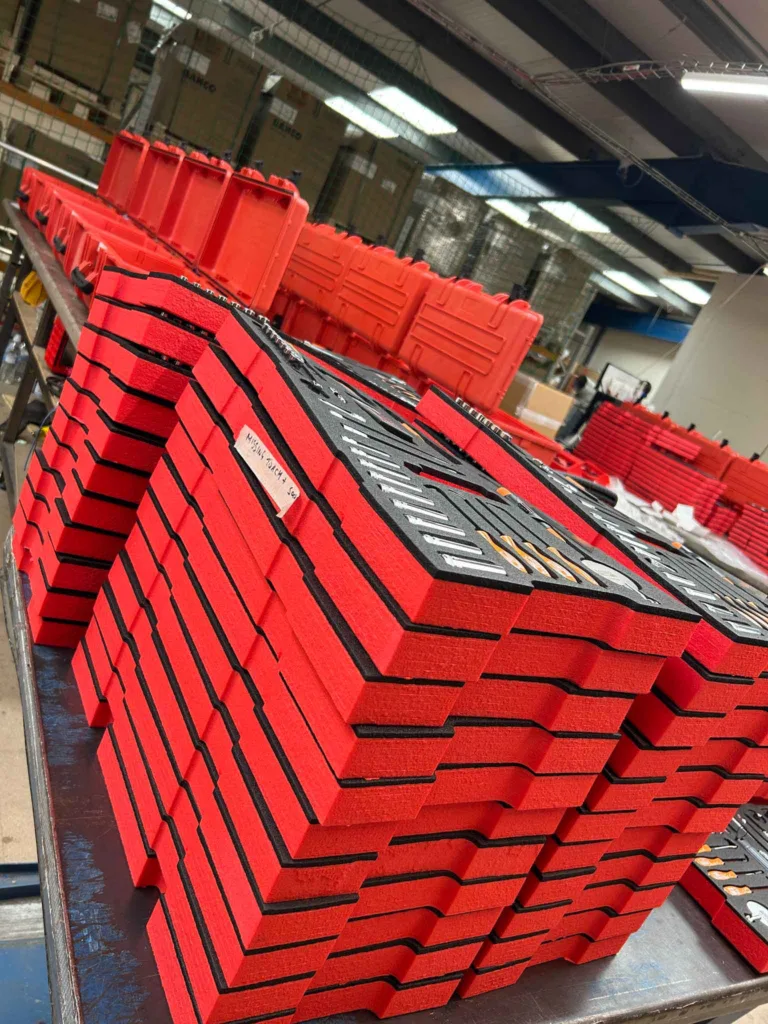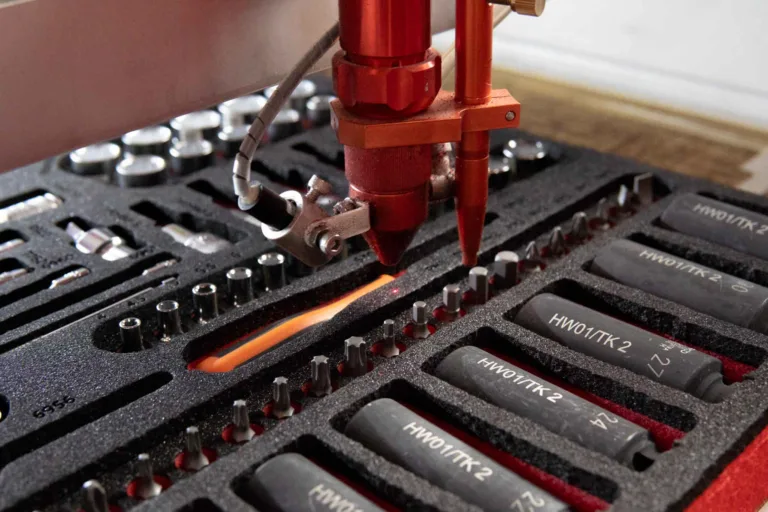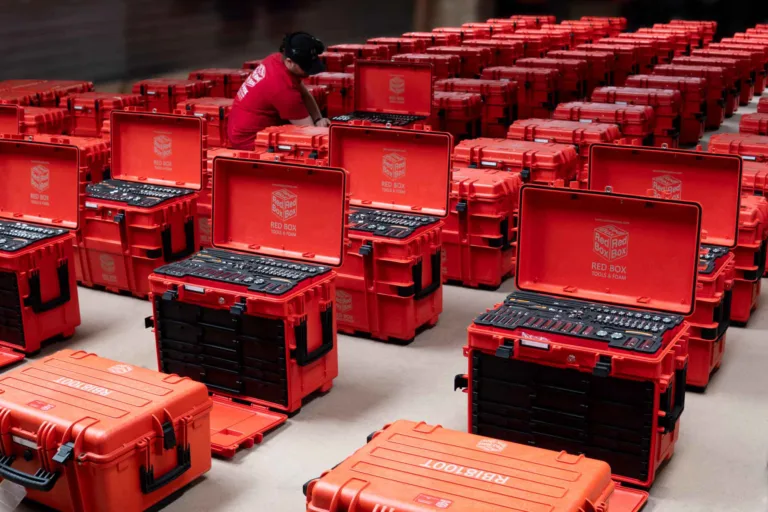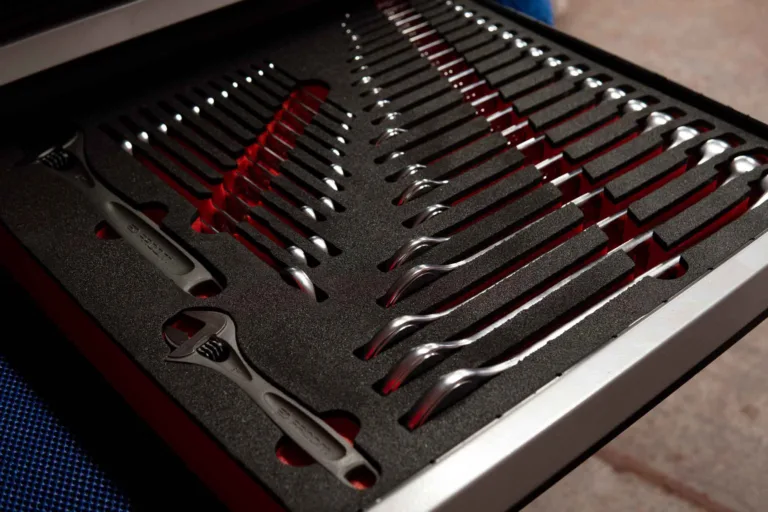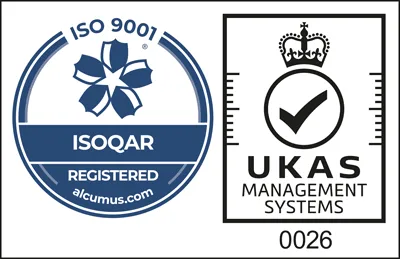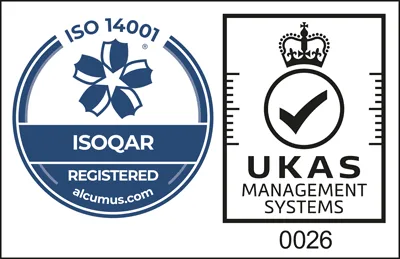Have you ever asked yourself: what are the must have tools for mechanics? Well, wonder no more. On this page you’ll find a list of the essential automotive tools every mechanic needs to maintain and repair vehicles.
Whether you like to tinker under a hood for fun or you’re a trained mechanic in an auto repair shop, the tools on this list will ensure you build a quality mechanics tool kit that contains the must have tools a mechanic should have in their collection.
Hand Tools for Mechanics
Hand tools are basic mechanic tools that form the foundation of any good mechanics toolkit. Essential for completing intricate tasks in restricted spaces, the hand tools on this list are the most common mechanic tools used for vehicle maintenance.
1. Socket Set
A quality socket set is an essential tool every mechanic needs to tighten and loosen fasteners of different shapes and sizes. We recommend investing in a set that includes both metric and imperial sizes.
This will ensure you have the capacity to work with the variety of nut and bolt styles you’ll encounter across different vehicles.
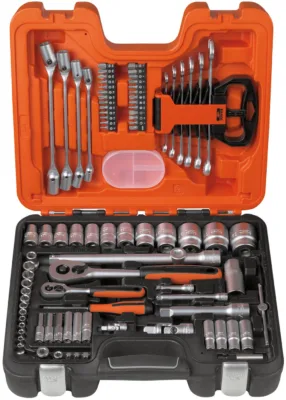
2. Ratchet Wrench
A rachet wrench set is a game changer when it comes to accessing fasteners in hard-to-reach places.
Like sockets, you’ll want to invest in both imperial and metric sized rachets to ensure you can accommodate nuts and bolts of different makes and models.

3. Torque Wrench
Torque wrenches are a necessity for mechanics who need to tighten a nut or bolt to a precise degree of tension. The most basic of these – a manual click wrench – will make an audible clicking sound when the specified torque level has been achieved.
This restricts you from under-tightening or overtightening bolts, helping to prevent damage to the fastener.
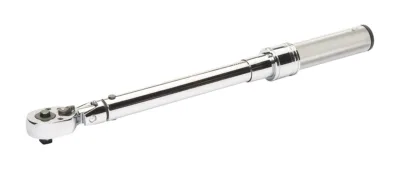
4. Screwdrivers
Screwdrivers are one of the most basic mechanics tools, but also one of the most widely used. Essential for fastening or loosening screws, they’re a versatile and indispensable tool no mechanic could get by without.
The best screwdriver sets for mechanics are undoubtedly flathead and Phillips screwdrivers. These will allow you to work on most types of screw you’ll find within vehicle bodies.

5. Adjustable Wrench
An adjustable wrench is essential for auto repair jobs involving a variety of bolt sizes.
The jaws can be widened or tightened as required, giving mechanics the versatility to work with fasteners of different widths using just one tool.
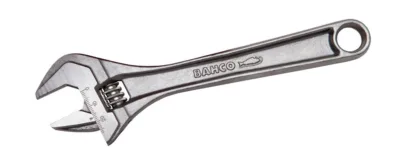
6. Pliers
Pliers are a mechanic must-have because they serve so many purposes. Useful for gripping, cutting, and bending wires – in addition to other automotive components – pliers provide mechanics with an extra pair of hands to help with everyday tasks associated with vehicle maintenance.
To build up your plier arsenal quickly (and cost-effectively), we recommend investing in a mechanics plier kit, which includes the essential pliers needed for automotive applications.
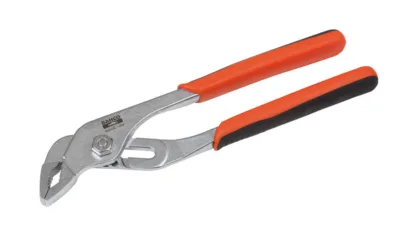
7. Oil Filter Wrench
You won’t get far as a mechanic without an oil filter wrench. This tool is designed specifically for the automotive industry and is your go-to when you need to change a vehicle’s oil filter that’s proving stubborn to extract.
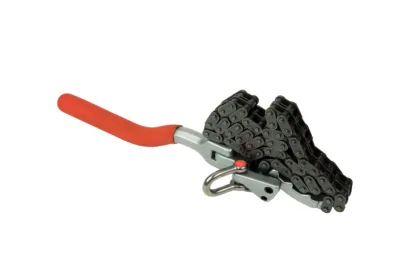
8. Allen Keys (Hex Keys)
Hex Keys or Allen Keys, as are they’re also known, are the perfect mechanics tool for handing the hexagonal bolts that are so common in automotive vehicles. Their lightweight and compact size makes them an excellent space saver in your toolkit.
To cover your bases, be sure to invest in both a Metric and Imperial sized key set.
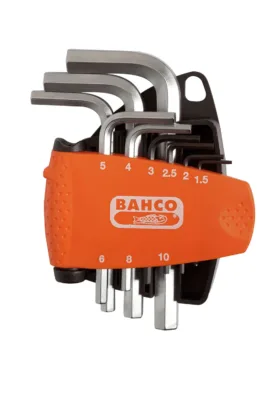
9. Breaker Bars
Breaker bars are the tool mechanics turn to when they need extra leverage to loosen stubborn bolts.
They’re especially useful for providing you with high torque in tight spaces, such as when you’re working under the hood on a vehicle engine.

10. Pry Bars
Mechanics rely on pry bars to safely separate stubborn component parts with applied force, without damaging them.
They’re mostly used for assembly tasks like panel removal.
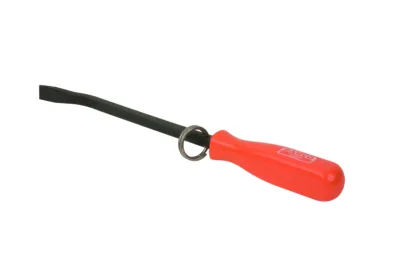
11. Chisels and Punches
Chisels and punches are two other essential hand tools that make mechanics’ lives easier. They’re great for precise metalwork, such as shaping or cutting metal components, driving out stubborn fasteners, and pin removal.

12. Bearing puller
When it comes to removing bearings and gears, a bearing puller is exactly the tool you want. Designed specifically for these purposes, bearing pullers are an essential automotive tool every mechanic needs in their basic toolkit.
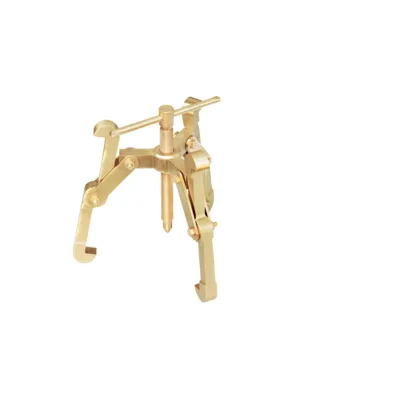
Power Tools for Mechanics
When you need a little more speed or force on your side, there’s nothing like a power tool. Our top power tools for mechanics list prioritizes the power tool types that play a key role in vehicle maintenance and repair.
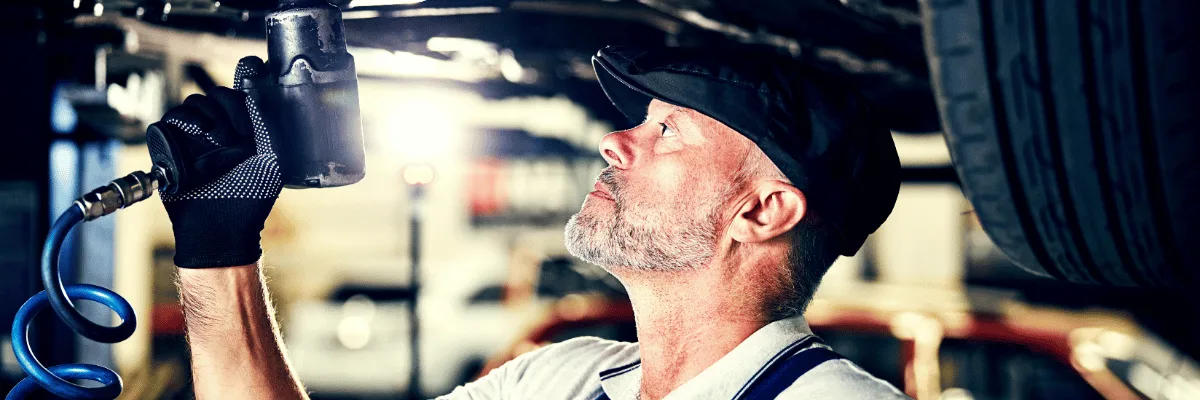
1. Cordless Impact Wrench
Cordless impact wrenches provide you with a fast and easy way to remove and fasten bolts on a vehicle. They’re a great tool to have on your side if time is of the essence. Many mechanics find them particularly helpful for tire changes and vehicle suspension maintenance.
2. Cordless Drill
Cordless drills are a mechanic essential for so many reasons. Along with helping you to drill holes with precision accuracy, the attachments they come with are appropriate for a variety of automotive applications, from buffing and fastening to grinding – giving you so much bang for your buck!
3. Angle Grinder
Angle grinders are another power tool that are tailor-made for vehicle maintenance. Useful for cutting, grinding, and polishing metal – depending on the disc attachment you’re using – they’re a top power tool for mechanics to invest in.
4. Air Ratchet
An air ratchet is a powerful mechanic’s tool, capable of high-speed fastening in tight spaces. One of its key benefits (in addition to speed) is that it can help to prevent against repetitive wrist strain, so it’s a no-brainer if you’re seeking ways to work harder and smarter.
5. Die Grinder
While angle grinders are a rough cutting tool – ideal for combatting rust, die grinders offer you more control and precision, allowing you to etch, grind, and cut materials, including glass and metal, to a high-quality specifications.
Diagnostic Tools for Mechanics
Mechanics rely on diagnostic tools to help them gather and interpret vehicle data from a multitude of sensors. For automotive applications, the following diagnostic devices are among the must have tools for mechanics:
1. OBD-II Scanner
An OBD-II scanner is crucial for reading and clearing error codes on modern vehicles. Mechanics rely on these to help diagnose and resolve issues affecting the vehicle’s performance, making OBD-II scanners one of the most important diagnostic tools for mechanics to include in their toolkit.
2. Multimeter
A multimeter is a must have mechanic tool for diagnosing electrical issues within a vehicle’s operating system. Specifically, multimeters allow you to assess things such as voltage, current, and resistance, giving you a wealth of data to help you make informed decisions about a vehicle’s sensors, fusing, and wiring
3. Brake Bleeder Kit
A brake bleeder kit simplifies the process of bleeding air from a vehicle’s brake system. The kit uses hydraulic fluid to release trapped air bubbles from within the brake fluid. This then restores hydraulic pressure to the brake system, helping to remedy issues with brake sensitivity.
4. Compression Tester
A compression tester measures compression levels in engine cylinders to help mechanics diagnose performance issues relating to a vehicle’s engine. Using this device, you’ll be able to quickly troubleshoot for signs of worn piston rings, faulty head gaskets, or a leaking valve.
5. Tire Pressure Gauge
A tire pressure gauge gives mechanics the ability to inflate a vehicle’s tires to the correct pressure. It’s an essential gadget for many reasons, not least because a tire’s pressure influences a vehicle’s fuel efficiency, tire longevity, and whether it’s safe to drive.
Conclusion
Investing in high-quality mechanics tools is essential if you’re servicing and repairing vehicles in a professional capacity, but it’s also beneficial if you’re renovating a vehicle as a hobby or for your own personal use.
Just as important as the quality of your mechanics tools is your tool storage. An organized tool system will allow you to work more efficiently, while protecting your tools from damage that may compromise their integrity. For that reason, we recommend investing in custom foam inserts to keep your mechanics tools easily accessible, efficiently organized, and in pristine condition.
Additionally, etching your tools and/or your foam inserts is a perfect way to improve tool accountability. Not only will you be able to quickly identify if – and what – tool is missing, you’ll also be able to easily reorder tools by simply quoting their associated reference code.
To speak to us about protecting your mechanics tools with custom foam inserts, or to browse our collection of essential automotive tools for mechanics, visit our Red Box Tools and Foam website or give our team a call.
You can reach us any time either by dialling +1 (770) 709-5169 or by dropping us a line at [email protected].



